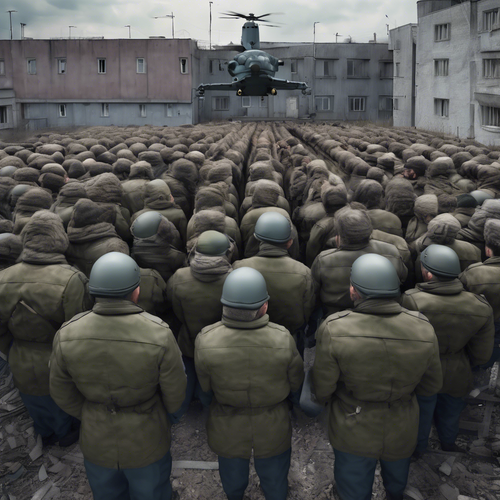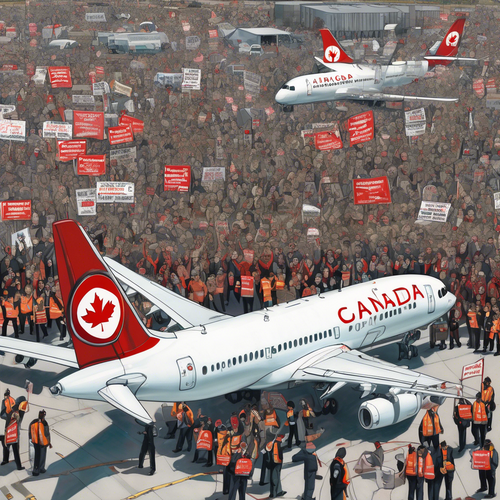Behind the Iron Curtain: The Absurdity of Prisoner Swaps Amidst Chaos
On a day marked by Moscow’s largest missile-and-drone assault in months, one might picture a somber battlefield, where lives hang in the balance. Yet, like an absurdist play penned by fate, Russia and Ukraine executed a prisoner swap, at once a grim necessity and a strategic farce. As missiles screamed through the sky, hundreds of individuals walked free. How do we reconcile such intense violence with gestures of goodwill?
A Historical Context: The Dance of Diplomacy
The irony here is sharper than a freshly sharpened sword: while Russia unleashes clouds of destruction, it simultaneously engages in diplomacy reminiscent of a game of chess played with mismatched pieces. Prisoner swaps have become a necessary lexicon in the language of conflict resolution—a paradox as rich as the soil in Ukraine that bears both mournful graves and vibrant sunflowers. 🌻
From history’s annals, we know warfare often leads to fleeting alliances—even as blood spills onto the earth. The reunification of families is overshadowed by the backdrop of ruin. One cannot help but feel a visceral dissonance: is this humanity, or a cruel anticipation of more strife?
The Art of Contradiction: Swapping Lives Amidst Ashes
More than 200 prisoners were exchanged, lives returned to their respective homelands, yet the symbolism feels heavy—like a burden carried by those who have suffered. Imagine families waiting for the return of loved ones, their hopes buoyed as missiles fall like ominous rain. The stark contrast between jubilation and mourning is breathtaking, an antithesis painted on the canvas of a fractured landscape.
“It’s as if we’re living in a Kafkaesque world where humanity’s progress is marked not by peace but by the trading of lives, all amidst the chaos of bombs falling,” remarks Dr. Elena Novikova, a political analyst specializing in Eastern European affairs.
The Human Factor: Narratives of Resilience
The stories emerging from these swaps are themselves captivating. For many, the reuniting was not merely an end to captivity; it bore testimony to resilience. Every liberated prisoner carries with them not only their own story but also a fragment of collective hope—a reminder that humanity pulses beneath even the most oppressive regimes. Each face that reappears is like the first bloom of spring after a harsh winter.
Amidst the Ironies: The Tensions Between Power and Vulnerability
A recent report highlighted that the exchange came on the heels of intensified military campaigns: hundreds of drones deployed, their whirring a striking contrast to the peaceful reunions by family members. It’s as if the universe is reminding us that while lives are traded in one sphere, destruction escalates in another. The world watches this tragic ballet unfold, with each movement laden with an irony sharper than glass.
- 💣 Missiles raining down as families celebrate reunions
- 💔 Captives freed while others face the harshness of war
- 🤝 Diplomacy danced fervently in the echo of gunfire
From Drones to Decisions: The Larger Picture
Several observers have noted the potential for these exchanges to facilitate broader discussions about peace. Yet there lies a disquieting question: is such a dynamic sustainable? Can trust ever bud from the ashes of conflict? As global leaders converge upon this issue, the stakes grow higher and the solution more elusive than ever.
Conclusion: A Yawning Abyss of Irony
As the dust settles from the latest attacks, and as returned prisoners embrace their families, we must ask: what kind of world have we conjured? One where every act of kindness is flanked by the shadows of warfare? The paradox extends beyond borders—life and death locked in an eternal waltz, neither willing to relent. In the theater of war, the absurd often becomes the norm. It would be amusing, if it weren’t so tragically true.
As humanity grapples with these tensions, let us not lose sight of the value of every liberated life, even as we mourn those left behind. The dialogue continues, punctuated by irony, hope, and resilience. Can we dare to imagine a future that transcends such contradictions?











This prisoner swap is like a twisted game of chess in the midst of chaos. Whats the real strategy behind it?
This prisoner swap amidst chaos raises ethical concerns. Should diplomacy prioritize saving lives over political games? #foodforthought
Why swap prisoners when missiles are flying? Diplomacy or chaos? History repeats itself in absurd ways.